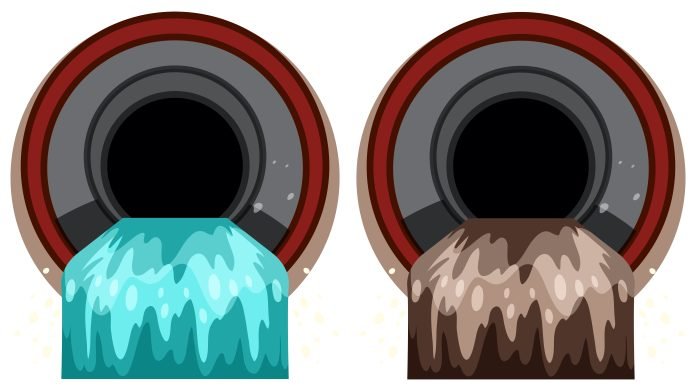Blocked drains can be a serious and persistent problem in the home. By leaving such an issue untreated, you may be ignoring a problem in your plumbing system that will not simply solve itself. There are steps you can follow to deal with blocked drains as they occur which may solve the problem in the short term, it will always be best to contact a plumbing professional to properly address the issue.
What are the signs of blocked drains?
The most obvious sign of a blockage in a drain is slower than normal drainage of water from your sink, shower, or bath and unexpected overflows. Perhaps more disturbing is a foul smell in your kitchen or bathroom. This could indicate food waste, hair, or other residues lodged in pipes. You may also hear gurgling sounds coming from the drain. You can try to solve these issues yourself, but your drainage may need specialist attention. There are plumbers in every Australian city who can help you. You do not need to tackle the problem of blocked drains in the inner west suburbs of Sydney yourself!
Common causes of blocked drains
Hair can easily find its way past the waste in showers and sinks and then accumulate in pipes. It will then get tangled and other debris such as wet wipes and sanitary products can get trapped in the mass. Another contributor is food waste. Some food remains may evade sink strainers and cause issues. Tea leaves and coffee grounds are particularly resistant to breaking down. The drain from your kitchen sink can also experience a build-up of congealed fats and oils. These substances can solidify in the drain and cause other food debris to become stuck. Never pour oils down your sink. Tree roots can break through pipes by working their way into cracks and cause major blockages. In such a case a plumbing professional will need to assess the situation and recommend the best course of action. You should make sure your drain is fitted with a grill and the surrounding area is kept clear of garden debris.
Simple methods to clear blocked drains
A mixture of baking soda and white vinegar can help dislodge debris. First, pour a cup of baking soda down the drain and let it sit for a few minutes, then add a cup of vinegar and a cup of hot water. Cover the drain and wait for about 10 minutes for the mixture to do its work, then pour some hot water down the drain to clear the residue. A build-up of hair in your shower drain is usually the easiest to deal with. A common trick is to straighten out a wire coat hanger and use this to remove the hair. Finally, there are caustic drain cleaning products on the market that target blockages. However, these can be corrosive and harmful to the environment. You can also find enzyme-based products that are slower to act but are safer for the environment. Plumbing professionals will not often recommend these products. And remember that if you have a persistent blockage, it will always be best to contact a plumbing professional to solve the problem.













